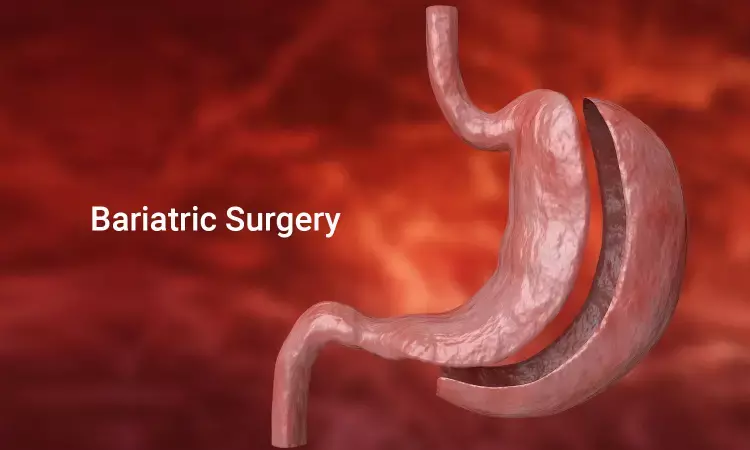- Home
- Medical news & Guidelines
- Anesthesiology
- Cardiology and CTVS
- Critical Care
- Dentistry
- Dermatology
- Diabetes and Endocrinology
- ENT
- Gastroenterology
- Medicine
- Nephrology
- Neurology
- Obstretics-Gynaecology
- Oncology
- Ophthalmology
- Orthopaedics
- Pediatrics-Neonatology
- Psychiatry
- Pulmonology
- Radiology
- Surgery
- Urology
- Laboratory Medicine
- Diet
- Nursing
- Paramedical
- Physiotherapy
- Health news
- Fact Check
- Bone Health Fact Check
- Brain Health Fact Check
- Cancer Related Fact Check
- Child Care Fact Check
- Dental and oral health fact check
- Diabetes and metabolic health fact check
- Diet and Nutrition Fact Check
- Eye and ENT Care Fact Check
- Fitness fact check
- Gut health fact check
- Heart health fact check
- Kidney health fact check
- Medical education fact check
- Men's health fact check
- Respiratory fact check
- Skin and hair care fact check
- Vaccine and Immunization fact check
- Women's health fact check
- AYUSH
- State News
- Andaman and Nicobar Islands
- Andhra Pradesh
- Arunachal Pradesh
- Assam
- Bihar
- Chandigarh
- Chattisgarh
- Dadra and Nagar Haveli
- Daman and Diu
- Delhi
- Goa
- Gujarat
- Haryana
- Himachal Pradesh
- Jammu & Kashmir
- Jharkhand
- Karnataka
- Kerala
- Ladakh
- Lakshadweep
- Madhya Pradesh
- Maharashtra
- Manipur
- Meghalaya
- Mizoram
- Nagaland
- Odisha
- Puducherry
- Punjab
- Rajasthan
- Sikkim
- Tamil Nadu
- Telangana
- Tripura
- Uttar Pradesh
- Uttrakhand
- West Bengal
- Medical Education
- Industry
Bariatric surgery may increase life span in obese patients: NEJM

Sweden: Bariatric surgery increases the life expectancy in obese patients as compared to the usual obesity care, suggests a recent study in the New England Journal of Medicine.
Obesity reduces life expectancy. Bariatric or weight loss surgery is known to reduce long-term relative death risk, however its effect on life expectancy is not clear. To shed light on the same, Lena M.S. Carlsson, Sahlgrenska University Hospital, Gothenburg, Sweden, and colleagues compared the life expectancy and mortality in patients treated either with bariatric surgery (surgery group; n=2007) or usual obesity care (control group; n=2040) using the Gompertz proportional hazards regression model. It included participants from the prospective, controlled Swedish Obese Subjects (SOS) study, and SOS reference study (reference cohort; n=1135), a random sample from the general population.
The median duration of follow-up for mortality was 24 years in the surgery group and 22 years in the control group; data on mortality were available for 99.9% of patients in the study.
Key findings of the study include:
· In total, 457 patients (22.8%) in the surgery group and 539 patients (26.4%) in the control group died (hazard ratio, 0.77).
· The corresponding hazard ratio was 0.70 for death from cardiovascular disease and 0.77 for death from cancer.
· The adjusted median life expectancy in the surgery group was 3.0 years longer than in the control group but 5.5 years shorter than in the general population.
· The 90-day postoperative mortality was 0.2%, and 2.9% of the patients in the surgery group underwent repeat surgery.
To summarize the findings -- In patients with obesity, bariatric surgery increased life expectancy as compared to the usual obesity care. Mortality, however, was higher in both groups than the general population.
"Life Expectancy after Bariatric Surgery in the Swedish Obese Subjects Study," is published in the New England Journal of Medicine (NEJM).
DOI: https://www.nejm.org/doi/full/10.1056/NEJMoa2002449
Dr Kamal Kant Kohli-MBBS, DTCD- a chest specialist with more than 30 years of practice and a flair for writing clinical articles, Dr Kamal Kant Kohli joined Medical Dialogues as a Chief Editor of Medical News. Besides writing articles, as an editor, he proofreads and verifies all the medical content published on Medical Dialogues including those coming from journals, studies,medical conferences,guidelines etc. Email: drkohli@medicaldialogues.in. Contact no. 011-43720751


